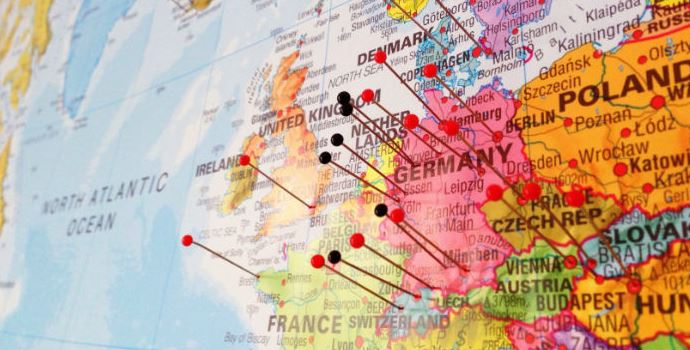Sustainable Brands is a global business community dedicated to helping shift the world to a sustainable economy. In anticipation of their Copenhagen conference in 2016, founder KoAnn Skrzyniarz outlines 7 sustainable, global business trends.
KoAnn Skrzyniarz travels around the world working with large brands to promote sustainability while still maintaining a competitive business.
“There will be new sustainable ideas and tools online daily, and we find that consumers around the world are coming onboard,” she explains.
Below, she outlines 7 global trends in sustainability.
1. Sustainability will be redefined
Several of the big brands are redefining sustainability and spreading the concept as part of their core company values and business model. An example is the skin care manufacturer Dove, whose campaigns are centered around redefining and advancing body ideals. Natura, another skin care company, bases their business around the message that it is not necessary to use a lot of chemical additives in skin care and cosmetic products.
The US fast food company, Panera, has introduced a business model where affluent people can pay extra for their bread to subsidize the needy.
2. Products and services will be re-designed
While the cosmetics industry is an obvious place to innovate (microbeads were big news this year), larger brands across sectors are changing even their core products to be more green. An example of this is Levi’s, who in 2014 introduced “Waterless Jeans”. In clothing production, water used in large, wasteful quantities, so Levi’s introduced jeans produced with significantly less water.
3. Business models will be re-designed
The sharing economy is booming, and businesses such as AirBnb have become household names. But “circular economy” is also gaining increased momentum. The circular economy refers to businesses that produce no waste and pollution. KoAnn highlights the company Interface as one example, which converts recycled fishing nets into blankets.
4. Awareness and engagement will increase
Many companies are actively promoting carpooling for their employees, which both reduces CO2 emissions and gives employees new opportunities to meet and talk. Carpooling has become the new “water cooler talk”.
Attention to sustainability as a central part of marketing is also increasing. For example, Dell has been made redeveloped their packaging to focus on sustainability, and give their brand a new positive focus.
5. Products and services that enable change
Changes in products and services will help enable consumers to choose sustainability. KoAnn Skrzyniarz highlights BMW, who has made a special service for their customers who bought electric cars. To compensate for the short battery life of electric car batteries, they can borrow gasoline for longer trips. Other examples include the activity meter Fitbit, which helps users lead an active life, or the sustainably produced telephone Fairphone.
6. Improvement in supply chains
A more transparent, sustainable approach to supply chains is gaining ground. One example is Unilevver, who has developed a supply chain that allows consumers to track the production and uses of palm oil.
7. Cross-company cooperation
Last but not least, KoAnn says that many big brands are beginning to work together with each other to promote sustainability.
 Nordic Startup News Early Stage Startup News From The Nordics
Nordic Startup News Early Stage Startup News From The Nordics


